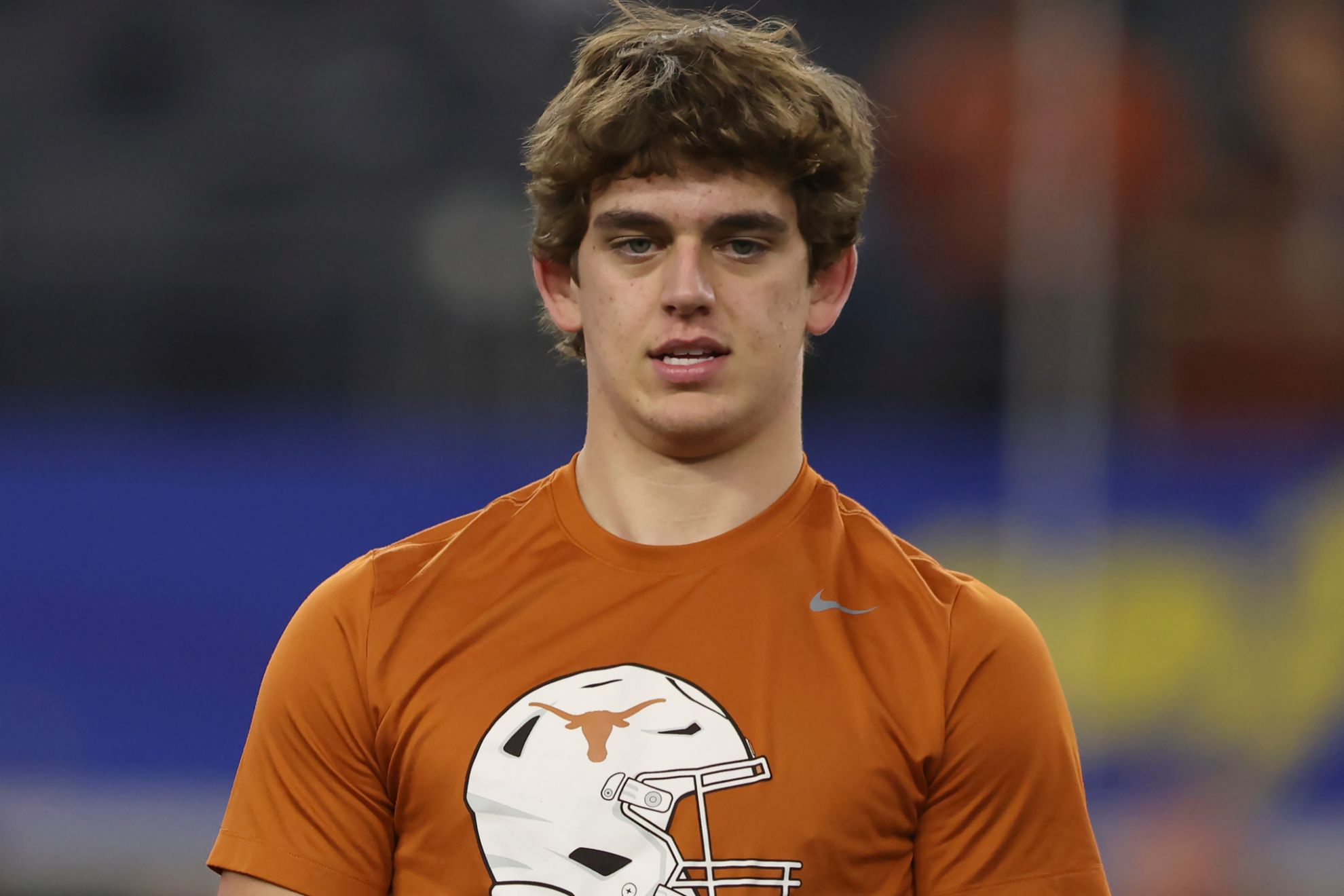“Arch Manning’s Rocky Start Raises Questions About His Readiness as Texas Longhorns’ New Starting QB”
The excitement surrounding Arch Manning’s debut as the Texas Longhorns’ starting quarterback was palpable. As the heir to football’s most prestigious quarterbacking dynasty, expectations were sky-high for the redshirt freshman to step in and immediately dominate the college football landscape. Yet, as the first half of the season unfolds, doubts are beginning to emerge about whether Manning is truly ready to lead one of the nation’s most storied programs to glory.
From the moment he committed to Texas, Manning was anointed as the savior of Longhorns football—a program desperate to reclaim its place among the elite. His pedigree is undeniable: the nephew of Peyton and Eli Manning, a five-star recruit, and a player whose high school tape suggested he was the most polished passer to come out of the Manning lineage. However, transitioning from high school stardom to leading a powerhouse program in the gauntlet of the SEC is a different beast entirely.
Through his first few starts, Manning has shown flashes of brilliance—pinpoint throws, impressive pocket presence, and the kind of football IQ that made his uncles legends. But he has also displayed the kind of inconsistencies that plague young quarterbacks. His decision-making under pressure has been questionable at times, leading to costly turnovers. Against top-tier defenses, he has struggled to find rhythm, often holding onto the ball too long or forcing throws into tight coverage. While his arm talent is undeniable, his ability to read complex college defenses at full speed remains a work in progress.
The Longhorns’ offense, under head coach Steve Sarkisian, is designed to maximize quarterback play, blending pro-style concepts with modern spread elements. Sarkisian, a renowned quarterback whisperer, was expected to mold Manning into an instant star. But even the best systems require execution, and Manning’s growing pains have been evident. Against Oklahoma in the Red River Showdown, he looked overwhelmed at times, failing to sustain drives and missing open receivers in critical moments. The Longhorns lost by double digits, and Manning’s stat line—barely completing 50% of his passes with two interceptions—sparked concerns about his readiness.
Comparisons to his uncles, as well as other recent Texas quarterback phenoms like Vince Young and Colt McCoy, were inevitable. But Peyton and Eli both struggled early in their college careers before blossoming into all-time greats. The question is whether Texas fans—and the program itself—have the patience to let Manning develop at his own pace. In today’s college football landscape, where immediate results are demanded and the transfer portal offers quick fixes, Manning’s leash may be shorter than expected.
Compounding the issue is the presence of backup quarterback Maalik Murphy, a talented passer with a big arm and mobility. Murphy’s performances in relief have led to murmurs about a potential quarterback controversy if Manning’s struggles persist. Sarkisian has publicly backed Manning as the starter, but another shaky outing could force the coaching staff’s hand. The pressure on Manning isn’t just about wins and losses—it’s about proving he can live up to the weight of his name.
Another factor in Manning’s slow start could be the offensive line’s inconsistent play. While Texas boasts one of the better units in the country, they’ve had lapses in protection, forcing Manning to scramble more than expected. A quarterback’s best friend is a reliable running game, and while the Longhorns have talent at running back, injuries have disrupted their rhythm. Manning hasn’t always had the luxury of play-action success, making his job harder against aggressive defenses.
Defensively, the Longhorns have been solid but not dominant, meaning Manning hasn’t always been put in favorable game scripts. When trailing, he’s been forced into obvious passing situations, allowing defenses to dial up pressure. His ability to handle blitzes and make quick decisions will be crucial as the season progresses.
Despite the early struggles, there are reasons for optimism. Manning’s work ethic has never been questioned, and his teammates have praised his leadership. He’s shown the ability to learn from mistakes, improving week to week in certain areas. His deep-ball accuracy has been a bright spot, connecting on several explosive plays that highlight his elite arm talent. If he can cut down on turnovers and improve his completion percentage on intermediate throws, the offense could take a major leap forward.
The true test will come in the second half of the season, as Texas faces a brutal stretch of SEC opponents. Games against Alabama, Georgia, and LSU will determine whether Manning can rise to the occasion or if the doubts about his readiness will grow louder. For now, the Longhorns are preaching patience, but in a sport where every game matters, Manning’s development must accelerate.
Arch Manning’s first season as the starter was never going to be flawless. But the early struggles have raised legitimate questions about whether he was thrust into the role too soon. Can he silence the doubters and fulfill his destiny as the next great Manning quarterback? Or will the pressure prove too much, leaving Texas to wonder if their golden boy was overhyped? The answer will shape not just Manning’s legacy, but the future of Longhorns football.



